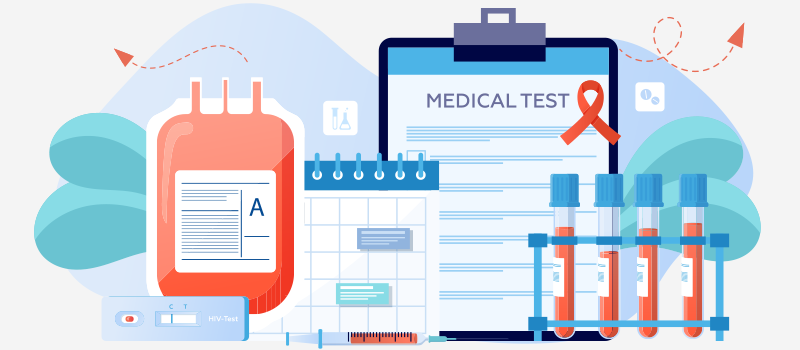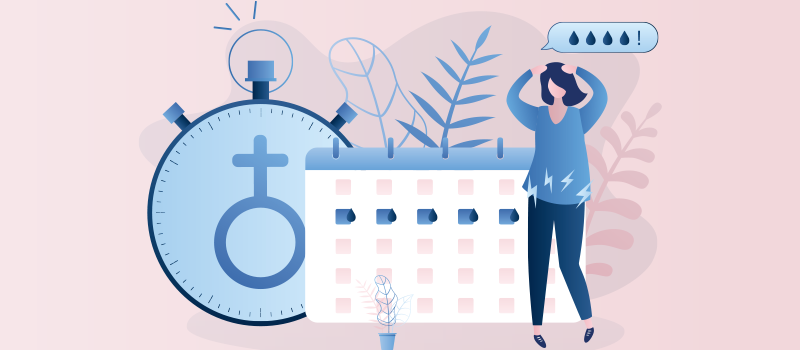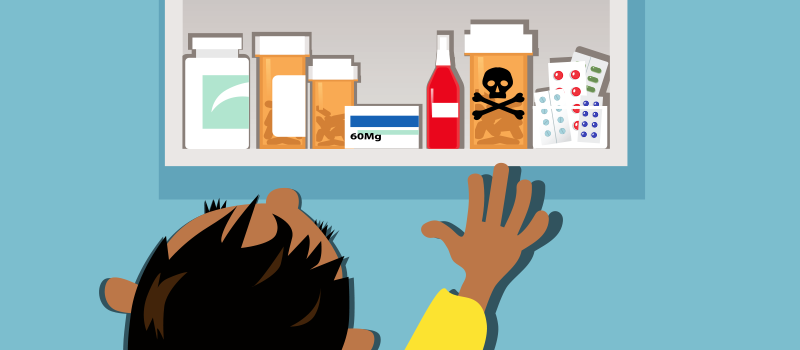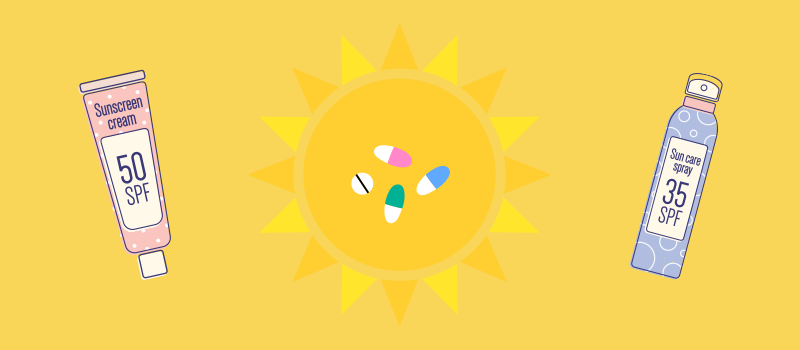What is the Best Natural Hormone Replacement for Menopause?

-
There is no single herb that is proven to be superior to others in treating menopause symptoms. You may find that one supplement works better for you than others.
-
Traditional natural hormone replacement uses natural compounds to increase progesterone and estrogen levels and alleviate hormonal symptoms in menopausal women.
-
Natural hormone replacement therapy uses natural compounds, offering a safer, more natural treatment than conventional hormone therapy. However, there isn’t strong scientific evidence of their effectiveness in treating menopause symptoms.
Vasomotor symptoms are common in postmenopausal women and can be quite distressing. Hormone replacement therapy (HRT) is used to treat menopause symptoms such as hot flashes, night sweats, vaginal dryness, mood swings, sleep disturbances, slowed metabolism, weight gain, thinning hair, and dry skin. However, taking HRT to alleviate hormonal symptoms carries some health risks. If these risks are a concern for you, there are natural alternatives to traditional hormone therapy.
These alternative treatment options, including herbal supplements and bioidentical hormones, can treat hormonal imbalances and relieve menopausal symptoms. Please continue reading to learn more about natural solutions and estrogen alternatives for symptoms of menopause.
Are there natural alternatives to HRT for menopausal women?
There are two main types of natural alternatives to HRT:
Bioidentical hormone replacement therapy
Bioidentical HRT refers to plant-derived and processed hormones that have a similar or the same molecular structure as natural female hormones in the human body.
Some of these natural hormone products are approved by the U.S. Food and Drug Administration (FDA). These hormone products are “natural” because they are made using ingredients sourced from plants or animals instead of chemically created in a lab. However, some of the bioidentical hormone replacement therapies (BHRT) still need to go through manufacturing processes by pharmaceutical companies to become bioidentical products.
On the other hand, some of these products are custom-compounded BHRT medications that are made by a pharmacist and contain mixed bioidentical hormones as prescribed by a healthcare provider.
Both FDA-approved and compounded bioidentical hormones are available in various formulations, including pills, gels, creams, sprays, and vaginal inserts.
Natural supplements
Traditional natural hormone replacement uses natural compounds to increase progesterone levels and estrogen levels and alleviate hormonal symptoms in menopausal women. Some of the natural supplements that may help in boosting natural progesterone and estrogen include:
-
Phytoestrogens (plant-based compounds that resemble estrogen)
-
Valerian root
-
Evening primrose oil
-
Red clover
-
Licorice root
-
Sage herb
-
Lemon balm
-
Fenugreek
-
Black cumin
-
Vitex
-
Fennel
-
Ginkgo biloba
-
Panax ginseng
-
Alfalfa
-
Hypericum perforatum
-
Pimpinella
-
Glycine soja
-
Passiflora incarnata
-
Folate
-
Omega 3 fatty acids
-
Vitamin D
What is the number one herb for menopause symptoms?
There is no single herb that is proven to be superior to others in treating menopause symptoms. Traditional therapies are not FDA-approved and should be used with caution.
You may find that one supplement works better for you than others. For example, studies have found that taking folate supplements appears to reduce the severity, frequency, and duration of hot flashes during menopause. Therefore, folate can be used by postmenopausal women to obtain relief from hot flashes and night sweats.
Note: Do not start a herbal supplement without consulting your healthcare provider. Some over-the-counter herbal supplements can have drug interactions with your other medications and put you at risk of serious adverse effects.
Find out: “How Long Does Menopause Last? Symptoms & Treatments.”
What can I take instead of estrogen for menopausal symptoms?
Certain over-the-counter and prescription medications can provide relief from the common symptoms of menopause:
-
Vaginal lubricants can relieve vaginal dryness and pain during sex. You can also ask your doctor about the use of topical vaginal estrogens.
-
Psychiatric medications (antidepressants) that affect the levels of the brain chemical norepinephrine may provide relief from hot flashes, mood swings, and sleep disturbances.
-
Selective estrogen receptor modulators (SERMs) such as raloxifene, ospemifene (Osphena), and bazedoxifene can relieve hot flashes, treat painful sex, and prevent bone loss.
-
Non-hormonal medications, such as fezolinetant (Veozah) and paroxetine (Brisdelle, Noven), are FDA-approved to reduce hot flashes.
-
Non-hormonal medications, such as gabapentin, oxybutynin, and clonidine, are FDA-approved for other conditions but may help in treating hot flashes.
Hormone replacement therapy (HRT) vs Natural HRT: Which is right for me?
Advantages of hormone replacement therapy (HRT)
HRT involves taking female hormones (estrogen and progesterone) to replace the hormones that the body has stopped making in postmenopausal women. HRT can treat menopausal symptoms, including both psychological and physical symptoms. It has additional benefits, such as improved mental health and bone health. Recent research in women’s health has shown that serious risks from menopausal hormone therapy are low, and the benefits outweigh the risks. What are the signs that you may need hormone replacement therapy?
Disadvantages of hormone replacement therapy (HRT)
The use of hormone replacement therapy (HRT) is linked to an increased risk of certain cancers, including uterine and breast cancer, heart disease, blood clots, stroke, and gallbladder disease.
Your doctor may recommend against taking hormone replacement therapy (HRT) to relieve hot flashes and other symptoms of menopause if you have underlying health conditions such as:
-
A personal or family history of breast, ovarian, or uterine cancer
-
Abnormal vaginal bleeding
-
Gallbladder or liver disease
-
Risk factors for blood clots, cardiovascular disease, heart attack, or stroke
-
Allergic reactions to HRT formulations
Advantages of natural HRT
Natural HRT uses natural compounds to replace hormone levels and treat hot flashes and other menopausal symptoms.
A key advantage is that bioidentical HRT can be customized to your needs based on the type and severity of your symptoms. Plant hormones may, therefore, offer a safer, more natural, individualized treatment approach compared to conventional hormone therapy. It may be especially useful for post-menopausal women with less severe symptoms such as mild hot flashes.
Disadvantages of natural HRT
There isn’t strong scientific evidence that proves herbal supplements are effective in treating vasomotor symptoms of menopause.
The FDA does not test or approve compounded hormones or other complementary and alternative medicine treatments. Although traditional natural hormone replacement is advertised as “natural,” many of these products are made and processed in laboratories.
Compounded hormones carry additional risks regarding purity and safety. They may contain untested hormones in addition to the ingredients found in FDA-approved bioidentical hormones.
Treatment for menopause symptoms requires an individualized approach based on the severity of your symptoms and other factors such as your age, concurrent medications, and medical history. You should work with your healthcare provider to find the best type of HRT that minimizes your risks and provides relief from menopause symptoms. Your doctor will also make sure that the natural hormone product does not interact with your current medication.
Keep in mind that it is important to manage health conditions that can worsen menopause-related problems or increase your risk of health complications, such as obesity, high blood pressure, and diabetes.
Save on Your Hormone Replacement Medication with BuzzRx!
Manage your hormone replacement medication costs with BuzzRx coupons. Here are direct links to substantial savings for each medication:
Remember, these coupons are widely accepted at over 60,000 pharmacies, including major chains like CVS, Walgreens, and Rite Aid. Just present your coupon at the pharmacy to ensure you're getting the best possible price.
References:
-
https://www.mayoclinic.org/diseases-conditions/menopause/symptoms-causes/syc-20353397
-
https://my.clevelandclinic.org/health/treatments/15245-hormone-therapy-for-menopause-symptoms
-
https://my.clevelandclinic.org/health/treatments/15660-bioidentical-hormones
-
https://www.nhs.uk/medicines/clonidine/common-questions-about-clonidine/
-
https://jamanetwork.com/journals/jama/article-abstract/2805538#:












SOCIAL